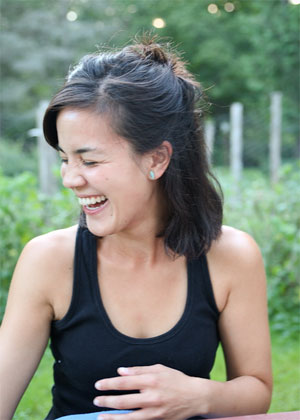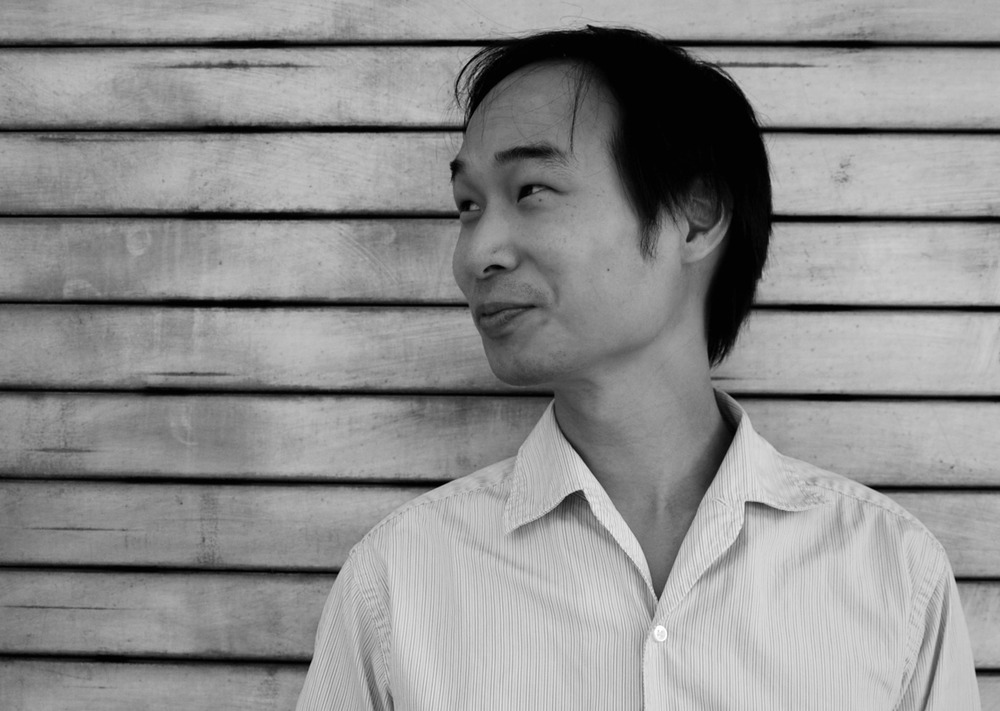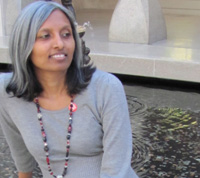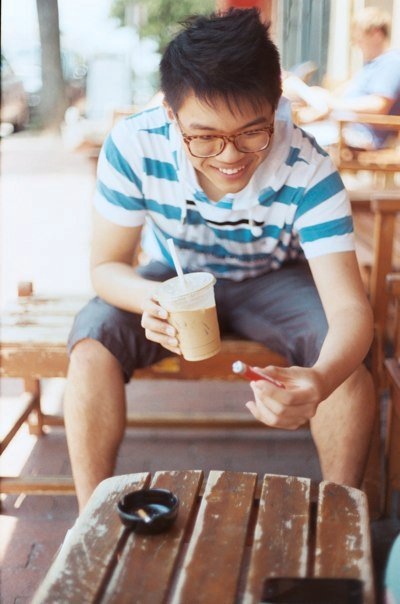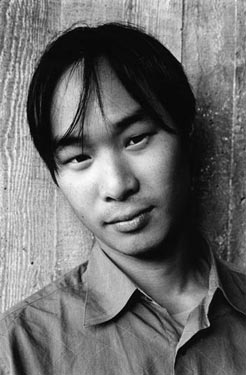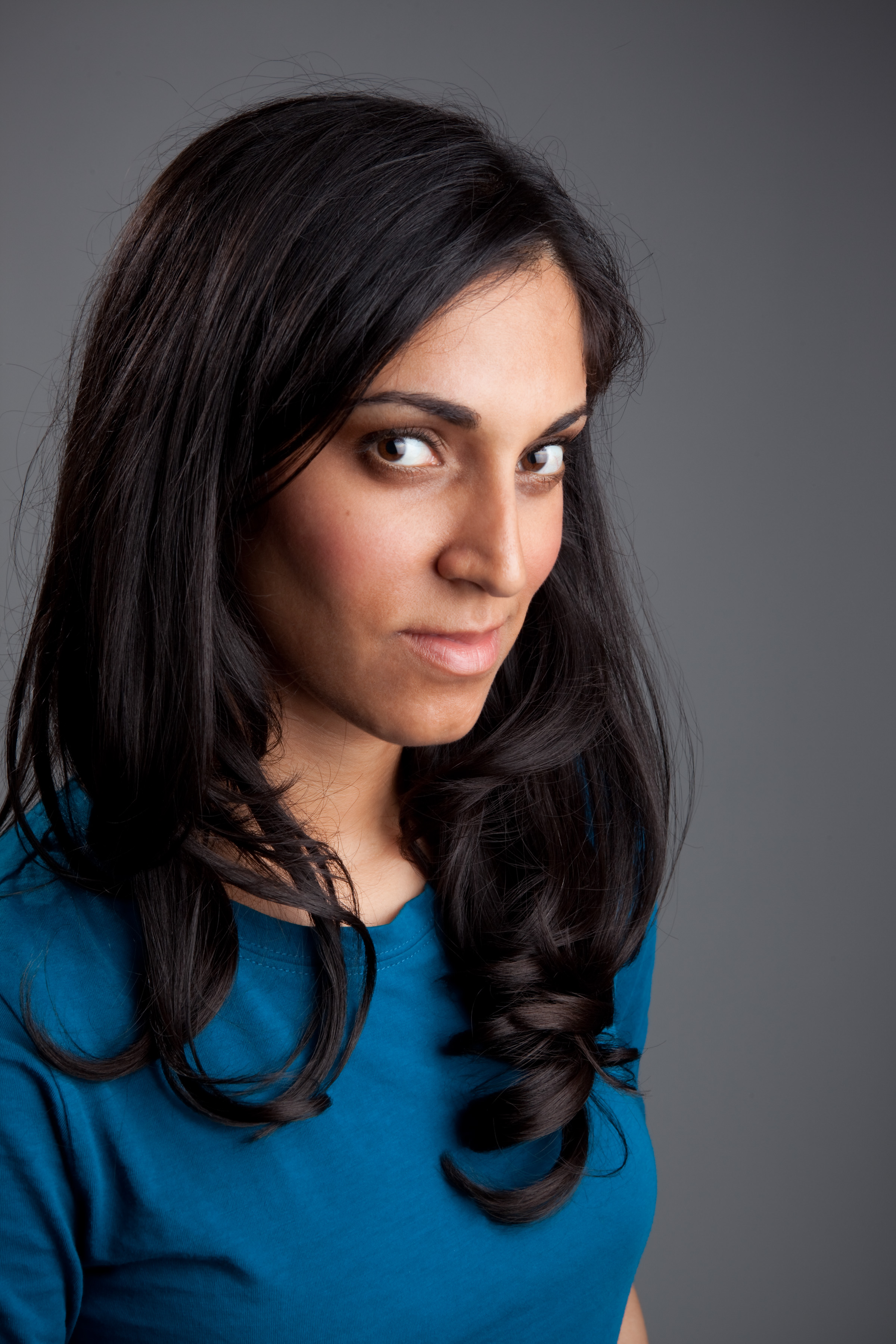Poet and media scholar Tung-Hui Hu was born in San Francisco and educated at Princeton University, the University of Michigan, and the University of California-Berkeley. His collections of poetry include The Book of Motion (2003); Mine (2007), which won the Eisner Prize; and Greenhouses, Lighthouses (2013). He is an assistant professor at the University of Michigan.
You taught at the Kundiman retreat where the other Verlaine readers Ansley Moon and Wo Chan attended as Fellows, in 2012. What's one memory or takeaway that you have from that retreat?
I remember a lot of things (the stained glass windows of the room where we held Hour Number 5 of workshop, dinner being just a short intermission; the final party, branded “Kundiman 2012: I am the Warrior”). But mostly I remember how exhausted I’d been with poetry before I arrived, not unlike so many others I met at the retreat who were suffering from post-MFA burnout. It was, as Truong Tran described it, as if we had been filled with other people’s words and thinkings about poetry to the point that we barely recognized our own language as ours. Kundiman let me shed this baggage and start again.
I’ve heard (I hope I’m not totally mistaken!) that you teach in Michigan, but also shuttle back and forth between Ann Arbor and the Bay Area. How is it living in more than one place? How does it/how has it impact(ed) your work?
I’m on research leave in San Francisco this year, and next year I’ll be back full-time at Michigan. Even though I don’t really live in two places at once, I don’t mind shuttling back and forth between them when I need to. I schedule urgent work—a graduate student thesis, a must-finish essay, or a conference call—around planes and airports; the no-place of travel, the banality of the food, is somehow productive for me. A friend says that she loves flying because all the decisions that might cause anxiety are taken out of the equation. I don’t own a TV, but I often teach television in my undergraduate classes, so all the second-rate shows that I’ve consumed in-flight make me feel strangely virtuous.
Kundiman has an ongoing Kavad project this year called Writing Race and Belonging: Would you mind spending some time discussing your relationship to writing, race, and belonging? Broad topic, I know, but we’re interested in any first memories, thoughts, or impressions you have when you think about those three ideas.
Just thinking about the white supremacist who found out he is 14% black, I find it interesting that we’ve begun to link race to genetic testing and bloodwork. In that process, race gets understood as a code to be decrypted from the data, a secret of the body that is made to speak. I’m not sure what this means, but I do find that one of the joys of writing is to take up race with much more subtlety. It’s concerned less with uncovering at a truth than, as you point out, questions of belonging, which continue to exist long after the secret of race is ‘uncovered.’
What are you working on now?
I’m working on a publishing project called the Office for Net Assessment. ONA is a lab for figuring out the role of print books in the digital age, and to this end, we’ve started to solicit material from artists, game designers, scholars, and writers (such as multilingual poetry written for border crossings by Amy Sara Carroll) who can help us experiment with potential answers. I’m also finishing an academic book on the pre-history of the digital cloud, and starting a new book of poetry on forests. The original word ‘forest’ had nothing to do with trees, but comes from the word ‘foreign,’ meaning outside the rule of law; the prison camp at Guantanamo would be, in this sense, a forest.
What are some favorite books (movies or art) that you would recommend?
I initially misread this question as asking about my favorite movie books (in response I could only come up with Eadweard Muybridge’s Animal Locomotion). Mary Ruefle’s Madness, Rack, and Honey is one of the few books I brought with me to California: essays for people who don’t necessarily like essays. As for poetry, I have Maged Zaher’s Thank You for the Window Office and Evie Shockley’s The New Black next up on my shelf.
The last artworks that stayed with me came out of a visit to Cai Guo-Qiang's Cultural Melting Bath, essentially a hot tub/sculpture with rocks and floating herbs. Sitting in our bathing suits, we struck up a conversation with a family from Jakarta, who graciously invited us to visit. A half-year later, we found ourselves introduced to several of West Java’s up-and-coming artists (in one corner of Cecilia Patricia Utario’s studio: hand-blown glass condom chandeliers) and walking through an old art gallery originally built by Dutch East Indies colonialists to display European masters. But now it was filled with a spectacular collection of Indonesian new media art, including a wickedly funny Andy Warhol remake, Yusuf Ismail’s “Eat Like Andy”. The family’s hospitality continues to amaze. Moral of the story: always accept propositions made in hot tubs, particularly if they involve art.
Tung-Hui Hu will be reading with Wo Chan and Ansley Moon at Kundiman & Verlaine on Sunday, November 17th at 4pm. Check out the Facebook event page here: https://www.facebook.com/events/1375415046033941/?source=1
Please note that we decided to hold a fundraiser at this event. Proceeds from this reading will benefit Typhoon Haiyan/Yolanda Relief in the Philippines. So, please come and open up your hearts as well as your pockets. The Philippines is in dire need. Every bit counts.


